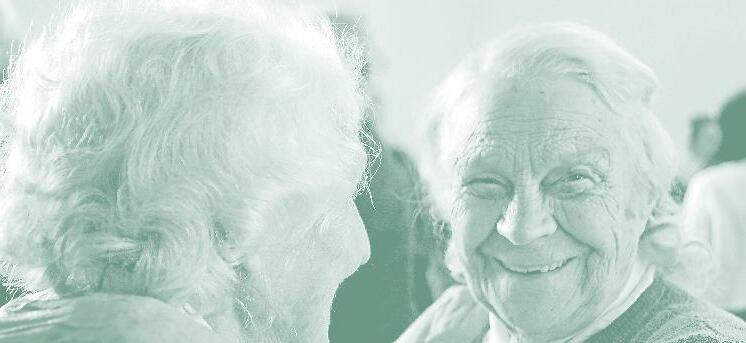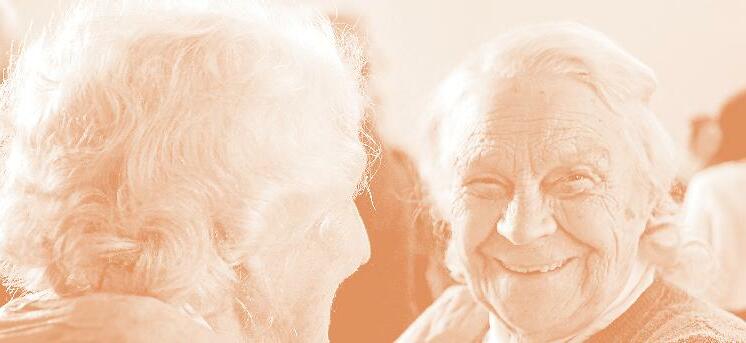
12 minute read
Medical Assistance in Dying (MAiD): The Current Situation
DECEMBER 2022
Dr. Robert M. Gordon
As most practitioners will be aware, federal legislation in the form of amendments to the Criminal Code of Canada, (i.e., the Medical Assistance in Dying Act, S.C. 2016 c.3), that provides for medical assistance in dying (MAiD) has been in place since 2016.
The legislation was amended in March 2021 by the Criminal Code (Medical Assistance in Dying) Amendment Act, S.C. 2020, c.2 (a.k.a. Bill C-7) to allow access to MAiD for those whose death is not imminent but who otherwise qualify for the procedure. In 2019, the original and more restrictive provisions that required a natural death be reasonably foreseeable before MAiD could be provided were found to be unconstitutional by the Quebec Superior Court (see, Truchon and Gladu v. the Attorney General [Canada] and the Attorney General [Quebec] 2019 QCCS 3792), and the Court ordered the governments of Canada and Quebec to change the offending provisions of their legislation. The Court held that the provisions violated sections 7 (life, liberty, and security of the person) and 15 (equality) of the Canadian Charter of Rights and Freedom, and could not be justified under section 1 of the Charter. The governments of Canada and Quebec subsequently changed the offending provisions of their legislation.
The amending (2021) legislation has created a twotrack system for MAiD requests based upon whether or not an adult’s natural death is reasonably foreseeable. In a nutshell, if a natural death is reasonably foreseeable, the procedure contains fewer obstacles than if it is not reasonably foreseeable. The legislation has also addressed the issue of whether MAiD should be available to an adult who is experiencing a mental disorder, (i.e., a mental illness), as their primary underlying condition. Adults with mental disorders have been temporarily ineligible for MAiD for a 2-year period, expiring March 17, 2023. That has allowed the Special Parliamentary Joint Committee on MAiD time to consult, consider, and resolve a number of significant issues only one of which is the vexed issue of a mentally disordered adult’s capacity to request MAiD.
At the time of writing, the March 2023 expiration date has not been changed despite the opposition mounted by some health care providers who want more time to prepare. There is some indication the federal government is listening to the concerns; the sunset clause, section 241.2(2.1) of the Act, may be extended when Parliament resumes in 2023.
According to the most recently available Health Canada Annual Report on MAiD, (i.e., the third Annual Report, released in 2022), there were 10,064 MAiD deaths during the 2021 calendar year. By the end of that year, there had been a total of 31,664 MAiD deaths (since 2016) and the procedure had been used in every Canadian jurisdiction. In the vast majority of cases, assistance has been provided by physicians (especially family practitioners) and (to a lesser extent) nurse practitioners, with a minimal number of (permissible) self-administered deaths using prescribed medications. Those interested in a wealth of detailed information about the practice of MAiD in Canada are urged to read the Health Canada report.
The evident popularity of MAiD is reflected in the steady rise in MAiD deaths as a percentage of all deaths in the country. British Columbia is a province with one of the highest percentages of such deaths each year. By 2018, the BC percentage of MAiD deaths stood at nearly 2.5 per cent compared with the national average of 1.5 per cent. The BC percentage had risen to 3.3 per cent of all deaths in Canada by the end of 2021.
The popularity of the procedure is a welcome development for many but it is also creating some logistical and other problems. In October 2022, the National Post pointed to access problems caused by a national shortage of MAiD practitioners. Apparently, many were stepping away from involvement because of the perceived moral hazards associated with the ever-widening eligibility criteria including the fear that MAiD requests were being driven by social and economic, rather than purely medical, factors. In this regard, concerns have been raised about the possibility that some staff working with Veterans Affairs have suggested MAiD as an option to clients seeking additional services.
Regardless, MAiD is clearly the procedure of choice for many older Canadians who wish to end their lives because of intolerable medical conditions. According to Health Canada, the age range of participants was 56 to 90 years (the average age was 72), and they were almost evenly split along gender lines (51 per cent were men). Cancer-related illnesses were the most frequent reason for seeking MAiD but some participants had unbearable neuro-degenerative disorders, (e.g., Alzheimer disease), and some were suffering from severe, unbearable circulatory/ respiratory conditions.
As most readers will be aware, the MAiD provisions in the Criminal Code intersect with provincial health care consent and related legislation and, probably more important, for British Columbia, the legislation governing the creation and use of Advance Health Care Directives as well as Representation Agreements for health care and personal care decision-making. It is highly likely that the latter instrument will be favoured by those who want to plan for MAiD in the Province because of the numerous safeguards built into that legislation, the existing and widespread popularity among users, and the levels of familiarity on the part of both medical and legal practitioners. We are not yet at the point where the option is permissible for those seeking MAiD but it is clearly under active consideration.
When it is permissible, there will be an obvious impact on legal practice, including Notarial Practice. Existing clients will likely seek to add specific MAiD clauses to their incapacity planning documents and new clients will likely seek assistance with the creation of new documents.
The issue of advance requests for MAiD including Advance Directives and other instruments for planning for future health and personal care has been addressed by the federal government. The latter, wisely, commissioned the independent Council of Canadian Academies to create expert panels to examine and provide reports (but not recommendations) in three important and controversial areas. 1. Whether MAiD should be available to “mature minors” 2. The issue of Advance Directives/ planning, especially in the case of mentally competent adults in the early stages of, for example, neuro-degenerative disorders such as Alzheimer disease or
Amyotrophic Lateral Sclerosis 3. The situation affecting individuals who are suffering from mental disorders who seek MAiD The commissioned work was completed, and the required reports were submitted to the federal government at the end of 2018, with the hope that those (and other) issues would be addressed as part of the mandatory review of MAiD in the Spring of 2020. No one anticipated the impact of the COVID-19 pandemic that has frustrated a number of legislative and policy initiatives at both the provincial and the federal levels. At the time of writing however, (November 2022), the MAiD review appears to be well under way through the Joint Parliamentary Committee on MAiD.
While the focus has been on those with mental disorders, (primarily because of the Truchon decision), it is highly likely that advance planning, (e.g., Advance Directives), will be the next item under consideration. That is because of the apparent popularity of the option and the potential
Regardless, MAiD is clearly the procedure of choice for many older Canadians who wish to end their lives because of intolerable medical conditions. According to Health Canada, the age range of participants was 56 to 90 years (the average age was 72), and they were almost evenly split along gender lines...
for a fusion of existing provincial personal planning legislation with the new federal legislation governing MAiD.
At the same time, in British Columbia the fusion will not be as simple as adding MAiD provisions to existing statutes such as the Representation Agreement Act. The federal legislation requires that a person seeking MAiD be an adult, (i.e., at least 18 years of age). The relevant provincial legislation in BC, (and some other jurisdictions), sets the age of adulthood at 19; and that affects both Representation Agreements and Advance Health Care Directives. The BC provincial legislation sets out a rebuttable presumption of capacity (or capability) in the case of adults, (i.e., those who are 19 or older), and may require qualification in the case of MAiD applications to ensure appropriate protections for adults with diminished capacity.
Similarly, the existing statutory test of incapacity (incapability) in health care matters and the procedure for assessing incapacity will undoubtedly have to change, in as yet undetermined ways. That may involve a new test of capacity (as opposed to incapacity) specifically for MAiD applicants. That important issue has been reviewed by The Canadian Association of MAiD Assessors and Practitioners (CANAP) which in April 2020 produced a useful report focused on the issue of capacity to consent to the procedure (see the reading list at the end of this article). Their report includes guidelines that constitute a set of best practices for those working in the field but do not have the force of statute or regulation at this time.
Clearly, medical assistance in dying is an extremely active area of Canadian law and practice. It contains controversial aspects that create concerns in some quarters; a handful of heath care institutions (especially those affiliated with certain faith communities) have been reluctant to allow practitioners to use their facilities. Perhaps the most high profile case was that involving the Delta Hospice Society in BC which, in April 2022, was required to leave a particular government-funded hospice in the Vancouver area for refusing to offer MAiD (see Farrish v. Delta Hospice Society, 2020 BCCA 312).
That case was resolved in favour of those wishing to provide MAiD. On the other hand, there are organizations that favour a dramatic expansion of MAiD, most notably the Quebec College of Physicians which—according to a recent report in the National Post (October 11, 2022)—has suggested that MAiD be available to address issues relating to infants aged up to 1 year who are born with severe malformations and other grave and severe conditions where the prospect of survival is extremely low.
Not surprisingly, that proposal was vehemently opposed by disability organizations, (mainly Inclusion Canada), that stopped short of drawing direct parallels with the euthanasia programs introduced in Nazi Germany during the 1930s.
In a nutshell, the new legislation has introduced a twotrack system with associated procedures, • one that affects those for whom death is reasonably foreseeable, (i.e., imminent); • the other affecting those for whom death is not reasonably foreseeable). The first track is a simplified version of the previous procedure; for example, in cases where death is reasonably foreseeable, a final consent to MAiD will not be required if the adult could lose the capacity to make decisions before MAiD can be provided.
The second track is not simplified and reflects the federal government’s attempt to ensure appropriate safeguards are in place especially to protect adults with disabilities. Those wanting more detailed information should consult the resources listed at the end of this article.
Just to remind readers, adults can receive MAiD if they satisfy five criteria. 1. They must be eligible for health care services in Canada. 2. They must be at least 18 and mentally capable of making health care decisions. 3. Their request for MAiD must be voluntary. 4. They must give informed consent to the procedure. 5. They must have a grievous and irremediable medical condition that must be serious and incurable and in an advanced state of irreversible decline, and they must be experiencing enduring physical or psychological suffering that is intolerable to them and that cannot be relieved in a manner acceptable to them. It should be obvious that there is more in the offing and practitioners


are likely to benefit significantly from a relatively close monitoring of developments, especially with respect to Advance Directives and Representation Agreements, and particularly over the next 12 months.
Further Reading
Canadian Association of MAiD Assessors and Practitioners. 2020, Assessment for Capacity to Give Informed Consent for Medical Assistance in Dying: Review and Recommendations. Vancouver, CAMAP.
Council of Canadian Academies, 2018, Medical Assistance in Dying: The State of Knowledge on Medically Assistance in Dying for Mature Minors, Advance Requests, and Where a Mental Disorder is the Sole Underlying Medical Condition. Council of Canadian Academies. Ottawa.
Gordon, R.M., 2021. The Annotated British Columbia Incapacity Planning, Adult Guardianship, Medically Assisted Dying, and Related Legislation. Toronto, Thomson Reuters; especially Chapter 4.
A 2023 edition of the Gordon text will be available in the Spring 2023, once MAiD is available to adults who have mental disorders as their underlying medical condition.
It is also helpful to monitor the online journal “Policy Options” for the work of Professor Jocelyn Downie from the Health Law Institute at Dalhousie Law School, and especially the related end-of-life project (see, eol.law.dal.ca).
Practitioners should also be aware of the information about MAiD procedures in BC that is available on the provincial Ministry of Health website. s Dr. Robert Gordon is Professor Emeritus in the School of Criminology, Simon Fraser University.
604 647 4123 | gcadman@boughtonlaw.com

With over 40 years’ experience, George provides wise counsel to guide you toward resolution of any real estate, business, corporate, or regulatory dispute.
*Practising through a Law Corporation
Uniquely West Coast™
Boughton 1/6 2022.indd 1
11/28/22 12:13 PM Who Will See Your Ad in The Scrivener?
• BC Notaries • Lawyers • Land Appraisers • Land Surveyors of BC • Real Estate Professionals • Real Estate Boards and
Associations • Age-Friendly Designates • MLAs and MPs in BC • Life Insurance Brokers and Agents • Accountants • Managers of Financial Institutions • Provincial/Federal Court Judges • Registrars • Mayors • Government Ministries • Libraries: Public and Private, including Law Society, Legal
Services, Education Facilities • Investment Management Agencies • Chambers of Commerce • BC Housing • BC Assessment • BC Buildings Corporation
Advertising Space Deadline for the Spring 2023 Issue: February 22
SPREAD KINDNESS
AND HELP LOCAL SENIORS
For 40 years, Barbara worked as a nurse caring for others. But after she retired, dementia robbed her of her ability to care for herself. Now in long-term care, she struggles with anxiety and feelings of depression. Your donation to Eldercare will help seniors like Barbara by providing new technology for dementia care, and therapy support for anxiety and depression.










